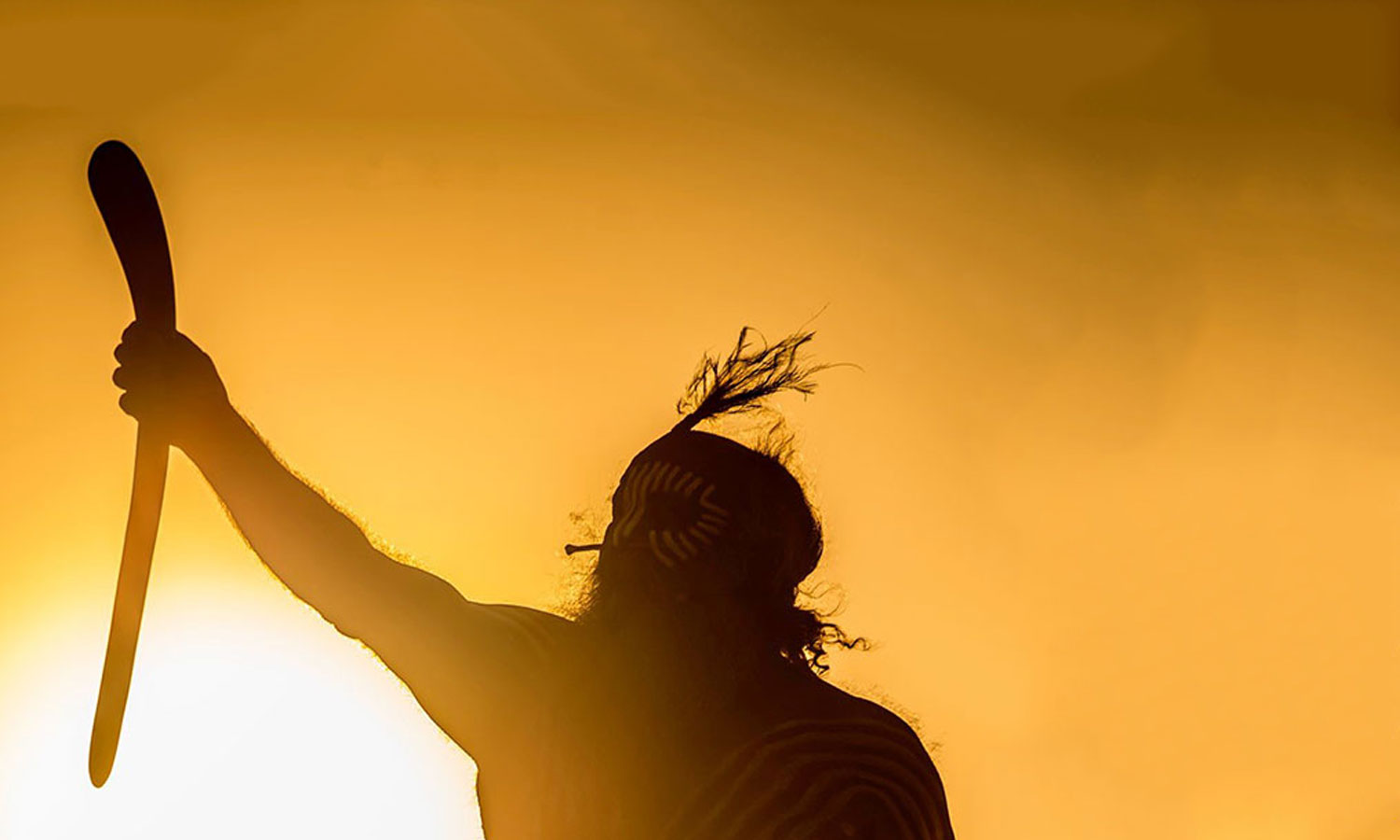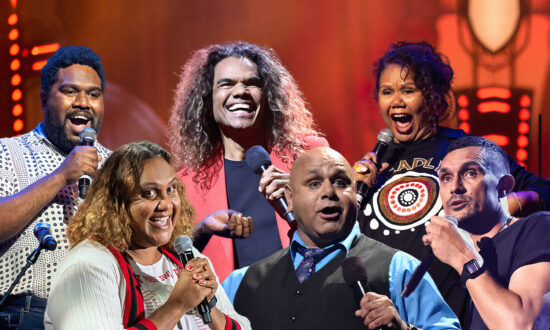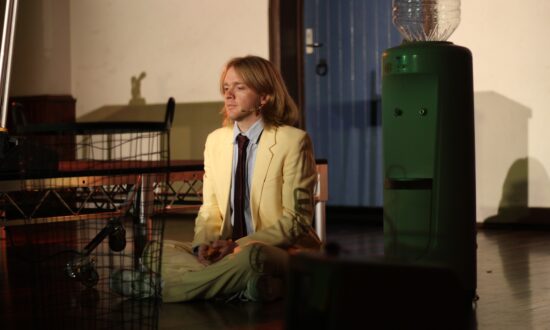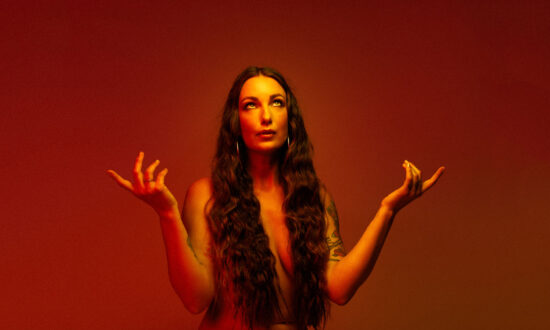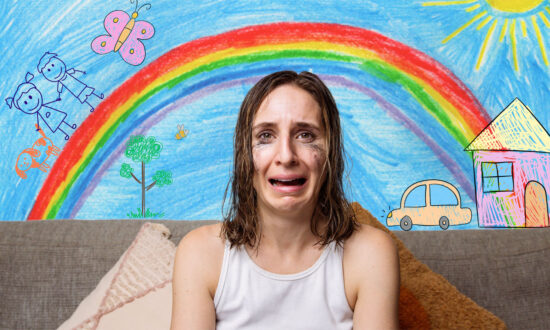As the infrastructure rises on the green grass of Murlawirrapurka and Kadlitpina parks, so too does Adelaide’s anticipation for the coming festival season.
Currently, there is a large hole dug out of the former, where a leaky lake is being repaired, but the shape of the East End’s major festival hubs is coming into view. There is an energy missing across the road from this eastern part of the Park Lands, though, as First Nations-owned and run arts hub Tandanya stands silent.
The building, which Tandanya CEO Phillip Saunders recently described to InDaily as a “decommissioned warehouse”, has been a launching pad for many Aboriginal and Torres Strait Islander artists and has hosted a range of First Nations Fringe shows in previous years.
“That’s where I played my first my first solo show, about five years ago,” says Marlon Motlop, a solo artist and one half of MARLON x RULLA.
“I got that because I played a part of the Spirit Festival and I was a First Nations artist, and that’s what those venues provide – they provide opportunities and they provide spaces for us to be able to express.”
Although Tandanya’s 2024 festival season has been severely curtailed by the space’s uncertain future, this year’s Adelaide Fringe program will still feature an array of Aboriginal and Torres Strait Islander art and expression.
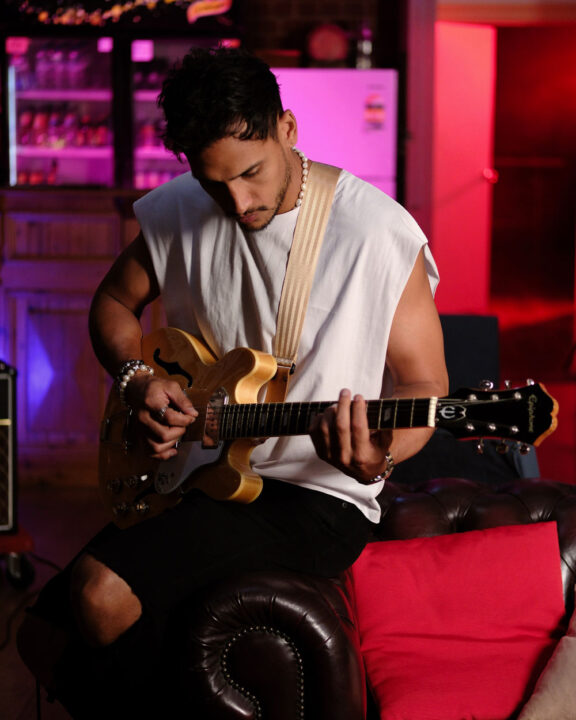
Musician Marlon Motlop. Photo: supplied
Marlon is booked to host his first solo-headline Fringe show, which is a long-held aim of the artist since pivoting from his professional football career.
“When I made the conscious decision that I was gonna sink my feet into this music thing, I wrote down that I wanted to play a solo show at the Fringe,” he says.
To be held at The Octagon in Gluttony on Saturday, February 17, the show will be the official debut of Marlon’s new single, “Blood in the Water”. It describes the artist’s interpretation of spiking Indigenous youth crime in his hometown of Darwin, the prevalence of homelessness there and here in Adelaide, and the resignation it stirs in well-meaning people in these communities.
“We look at homelessness and we look at Aboriginal suicide rates around the country, and… we get into this groove of, ‘Well, what can I do?’,” Marlon says.
“And we’re all guilty of it, and I’m definitely guilty of it as well… that perspective of it being out of sight and out of mind, so you just don’t pay attention to it.”
For Marlon, who was also a collaborator on the A.B. Original pro-Voice song “Yes”, being on the Fringe bill brings a broad audience with whom he can share his perspective.
“What’s making the First Nations space so special is that we’ve got a lot of artists and creatives that are speaking about their life experience.
“There’s an element of education around that for non-Aboriginal people and other families here in Australia that listen to First Nations music and art, because it tells such a pivotal story about the history of this country, but also the history of our lived experience living in this country.”
This communicative work, which Marlon admits “can be a little bit draining”, is what “comes with the territory” of being a First Nations person, he says. “You’re really just doing what the pioneers did before you.”
Just as education is important to Marlon, Uncle Major “Moogy” Sumner has dedicated much of his life to sharing stories of his life and culture as a Ngarrindjeri/Kaurna man. This year, as part of Adelaide Fringe, the Elder will hold a three-day camping festival called Dupang Pangari.
Hosted at Long Point on the Coorong (or Kurrangk, in Ngarrindjeri), the event will feature workshops on dancing, basket weaving, club and clapstick carving, and yidaki. It may also include boomerang throwing (wind permitting, Moogy says).
Dupang Pangari Festival, happening from Friday, March 15, until Sunday, March 17, is based on the corroborees held by Aboriginal and Torres Strait Islander people for millennia as a form of intracontinental cultural exchange.
“There’d be people come from everywhere to bring their own paintwork, their own dancing,” Moogy explains. “It was used for a number of things – there was food, there was trade of different artefacts, there was arranged marriages set up between different groups.”

Dupang Pangari will be a camping festival and corroboree offering an opportunity to learn about Country. Photo: supplied
People can attend Dupang Pangari for a single day or up to the full three days. In addition to dancing, carving and weaving skills, Moogy hopes attendees leave with a new perspective.
“It’s us inviting them down to learn about this land,” he says.
“Every day you sit down in school, even an adult, they… learn all about the Western culture. Everything you do was Western education. Why not learn about this place?”
To Moogy, this means teaching people to recognise edible plants – like kalathami, a currant, and panpandii, a wild cherry – or how to fish alongside the locals.
“You sit down and you watch the pelicans, and it’s only common sense. You get the pelicans… herding the fish into the shallow. And when they do that, we walk the nets out right around them.
“You can see the pelicans are not too happy. There’s flapping and they’re making noises, probably swearing at us,” he laughs. “We just take enough just to feed us, and then we’ll walk away.”
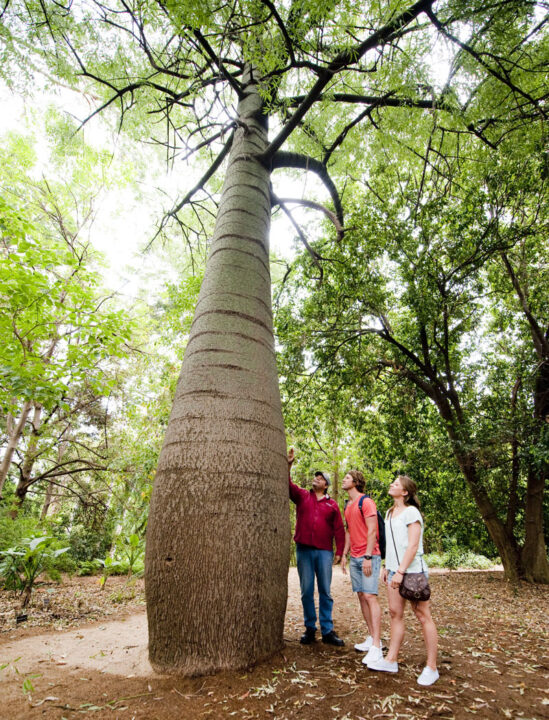
Haydyn Bromley will host First Nations Cultural Tours in the Adelaide Botanic Garden. Photo: supplied
Closer to home, Haydyn Bromley will also immerse Fringe-goers in Aboriginal and Torres Strait Islander knowledge and culture, through a series of First Nations Cultural Tours in the Adelaide Botanic Garden this Sunday, February 11, as part of the Fringe’s opening celebrations. The 45-minute tours will offer an introduction to native plants and bush tucker, as well as exploring the social history of Australia’s First Peoples.
Bromley, who has been involved in the Adelaide Fringe’s reconciliation action group, has run Bookabee (a business offering Aboriginal cultural services) for almost 20 years. Prior to this, he worked as a teacher.
From his work in schools through to now running cultural training sessions and tours across South Australia, Bromley’s mission has always been to dispel myths and lies told about First Nations people and commonly disseminated in the media.
“Everyone knows Aboriginal people, everyone knows Aboriginal Australia,” he says. “Whether people have engaged and rubbed shoulders with us or not, everyone has got an attitude or an opinion about us.
“The majority of that has been formed by reading the media, the TV, you know, the news and all that, and we don’t get a fair deal in those places. So, good people were hoodwinked into thinking that we were the problem.
“Everything [Bookabee does] is about adjusting that and giving people pause to reflect and think about how to engage Aboriginal people in a different light.”
Prior to last year’s referendum, Bromley felt he had spent 30 years leading Australian society down a path toward a new communal understanding. And there has been progress – he describes the conversations he would lead earlier in his career as “chalk and crayons” compared with the more academic discussions he has now.
But this made the Voice’s failure hit even harder.
“I was shattered as the result of the referendum,” he says.
“My first training day after the referendum was the Monday, and I was feeling pretty shellshocked. Since then, I’ve been able to talk and have yarns about it, and process it within myself, how I’m gonna manage this. But it’s not been an easy process.
“It’s just hardened my resolve to do more. I know that if more people understood what I see, then we would be in a better position today.”
Comedian Janty Blair, a Butchulla, Mununjali and Woppaburra woman (or a BMW, as she describes herself on stage), is part of the Aboriginal Comedy Allstars – a travelling troupe who’ll play at Umbrella Revolution in the Garden of Unearthly Delights from March 13-17.
Blair, who is Melbourne-based, has no problem making light of controversial topics. She’s revelled in making fun of Sam Newman for his declared rejection of welcomes and acknowledgements of Country. But she is now approaching the referendum and tension around January 26 with circumspection.
“I wanted to do a joke about the Voice, and I ran it past a couple of people, and we just decided, as Aboriginal people, we’re not gonna bring that to the stage,” she says. (Though she does run a couple of jokes she wants to take to the stage by InReview.)

Janty Blair is performing with the Aboriginal Comedy Allstars in the Garden of Unearthly Delights. Photo: supplied
For Blair, comedy is home and it is healing. This is the most important thing she can offer to her audience.
“Blackfellas will always say, you just grow up with comedy,” she says.
“Comedy means family, laughter. We don’t let each other get too above our station. We take the crap out of each other.
“But comedy helps you get through the tough times. We’ve had some really unexpected deaths in the family – suicides, heart attacks, all that sort of stuff. What gets us through is the ability to laugh.
“When I’m going through tough stuff in my life, I just start thinking of funny jokes. I start laughing and I heal myself.”
Just as the Adelaide Fringe tries to capture a diversity of performances from emerging artists across mainstream Australian arts scenes (peppered with a heavy smattering of prime-time-television comedians), so too does it try to engage a representative cross-section of First Nations artists and performance.
It does this through its programming, and through dedicated First Nations grants and mentorship programs.
Adelaide Fringe executive director Tara MacLeod says this has led to “an increase in the number of First Nations-led shows year on year in the festival”.
Frank Yamma, a pioneering artist known for his blending of Pitjantjatjara and English in his Western- and Aboriginal-influenced music, agrees that support from organisations like the Fringe is critical.
“Us blakfella mostly live on the fringe,” says the musician, whose February 9 show at The Gov with long-time collaborator David Bridie is presented as part of the festival program. “The Adelaide Fringe has been going a long time. The support they give artists is very important. Good for audience, too.”

Get InReview in your inbox – free each Saturday. Local arts and culture – covered.
Thanks for signing up to the InReview newsletter.
But still, there is that hole on the corner of East Terrace and Grenfell Street. One which will be felt equally by audiences and artists this festival season.
“Tandanya was a great hub for all range of First Nation art,” Yamma says. “It’s hard to replace an organisation like that.”
The 2024 Adelaide Fringe officially opens on February 16. See the full program online.
This story is part of a series of articles being produced by InReview with the support of Adelaide Fringe.
Read more 2024 Adelaide Fringe stories here.
Support local arts journalism
Your support will help us continue the important work of InReview in publishing free professional journalism that celebrates, interrogates and amplifies arts and culture in South Australia.
Donate Here
